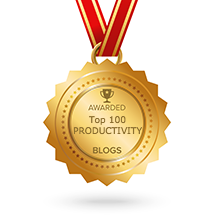Master Your Equipment
Last year I wrote a post (Shoot Every Day) reflecting on one of the best ways to improve your performance. It was based on a conversation between two pro photographers talking on a photography podcast. The conversation centered around how a photographer could get better at their craft. The conclusion was very straight-forward. A photographer, especially a new one, could improve their photos most by shooting more pictures. They concluded that while things such as classes, books, and better equipment were important, getting out and shooting would lead to a larger improvement in their skills and subsequently in their photos. In my post, I related this lesson to business in general and recognized that the advice applied to other occupations as well. To get better at your respective craft or job, you had to get out and do more of it.
Fast forward to a couple of weeks ago. I had just returned home from a trip to California where I shot a lot of photos. While looking through my pictures, I was listening to another photography podcast. This host was having a similar conversation to the earlier one. He wanted to know what advice his guest would give a budding photographer trying to get into the business. Figuring the answer would be the same, I almost turned the podcast off. And in fact, she did say that shooting more was important if a new photographer wanted to improve. However, she went on to quickly say there was an even more critical thing to do first. Intrigued, I stopped what I was doing, and listened to her answer. Her answer was one of those answers where you say “Duh!” and then realize that even though it’s obvious, it’s not usually done.
Her advice was to “Master your equipment”.
Wow. Sound advice and so obvious. Don’t just pick up the camera and start shooting. Actually take the time to learn how it works. Read the manual. Understand the different settings. Know what the buttons and switches do. Learn how to adjust them quickly. Be able to work them in the dark. Her premise was simple. In order to transcend the equipment and be able to focus on the subject and just shoot, you had to know your equipment well enough to not have to think about it while shooting. As I thought about her advice, I thought back on my recent trip. While I did shoot lots of photos, I remembered several times when I missed, or almost missed, a shot because I was fumbling with the camera settings or trying to remember which button did what. I had owned the camera for a while, but I had not taken the time to really learn how to use it. Sound advice indeed.
Not only did it hit home for my photography but it also made me think about my business. Are my team and I learning how to fully use our tools and equipment? Are we able to transcend these tools and focus on the customer and the end result? Or do we stumble along the way, trying to get the tools to work? How about you?
Fast forward to a couple of weeks ago. I had just returned home from a trip to California where I shot a lot of photos. While looking through my pictures, I was listening to another photography podcast. This host was having a similar conversation to the earlier one. He wanted to know what advice his guest would give a budding photographer trying to get into the business. Figuring the answer would be the same, I almost turned the podcast off. And in fact, she did say that shooting more was important if a new photographer wanted to improve. However, she went on to quickly say there was an even more critical thing to do first. Intrigued, I stopped what I was doing, and listened to her answer. Her answer was one of those answers where you say “Duh!” and then realize that even though it’s obvious, it’s not usually done.
Her advice was to “Master your equipment”.
Wow. Sound advice and so obvious. Don’t just pick up the camera and start shooting. Actually take the time to learn how it works. Read the manual. Understand the different settings. Know what the buttons and switches do. Learn how to adjust them quickly. Be able to work them in the dark. Her premise was simple. In order to transcend the equipment and be able to focus on the subject and just shoot, you had to know your equipment well enough to not have to think about it while shooting. As I thought about her advice, I thought back on my recent trip. While I did shoot lots of photos, I remembered several times when I missed, or almost missed, a shot because I was fumbling with the camera settings or trying to remember which button did what. I had owned the camera for a while, but I had not taken the time to really learn how to use it. Sound advice indeed.
Not only did it hit home for my photography but it also made me think about my business. Are my team and I learning how to fully use our tools and equipment? Are we able to transcend these tools and focus on the customer and the end result? Or do we stumble along the way, trying to get the tools to work? How about you?
Labels:
performance,
productivity,
training
|
Bookmark this post:
|
|
Subscribe to:
Post Comments (Atom)











 This work is licensed under a
This work is licensed under a
No comments:
Post a Comment